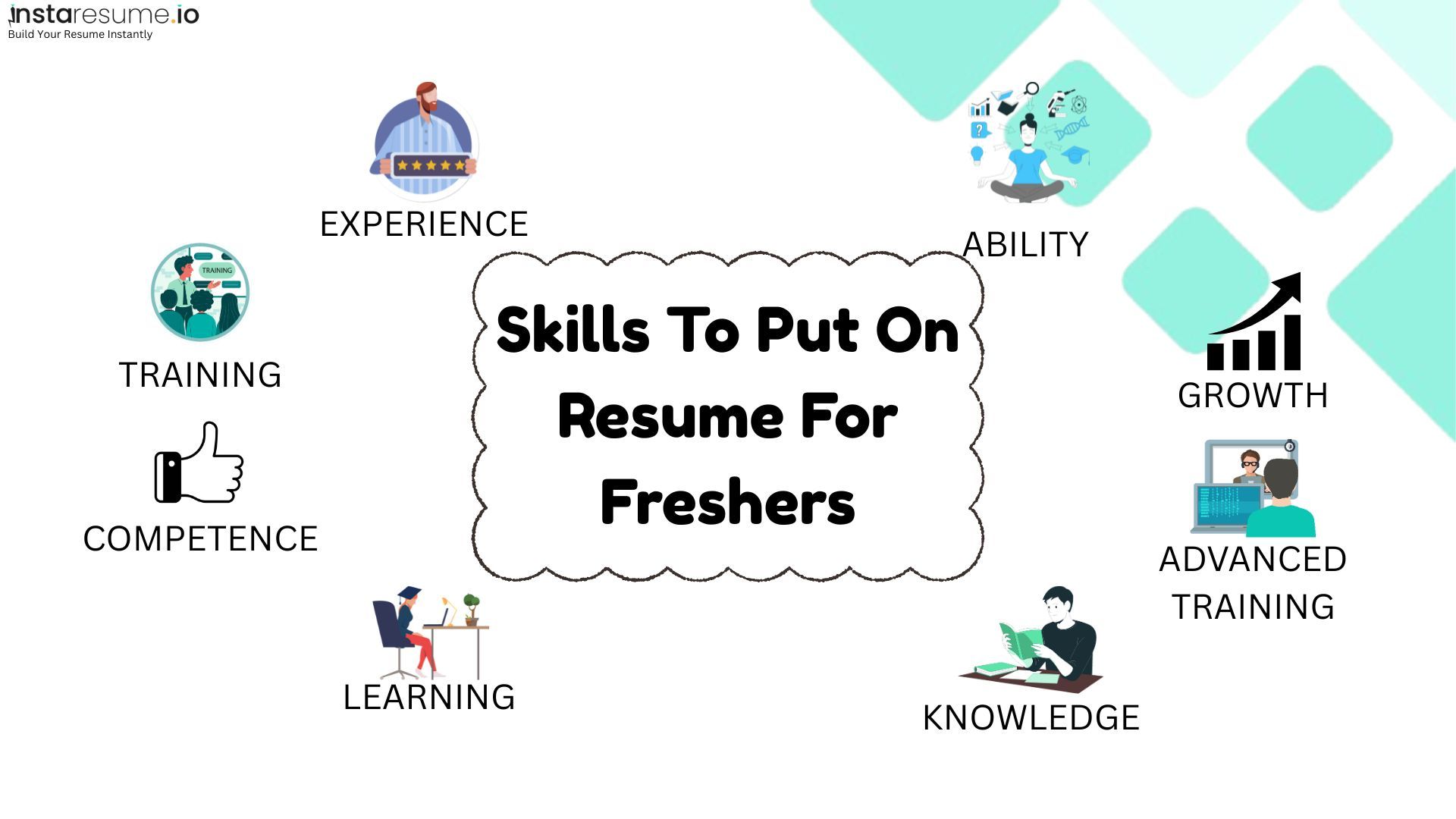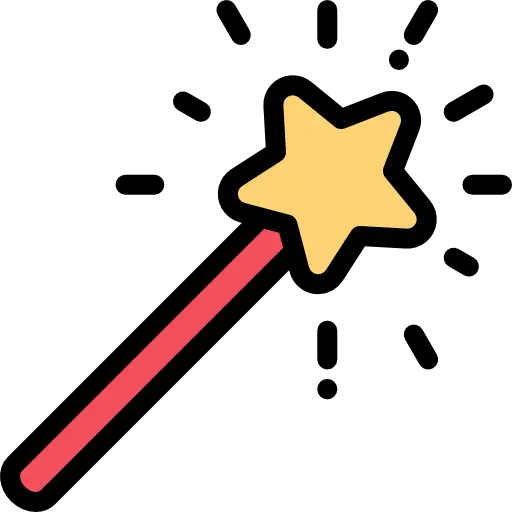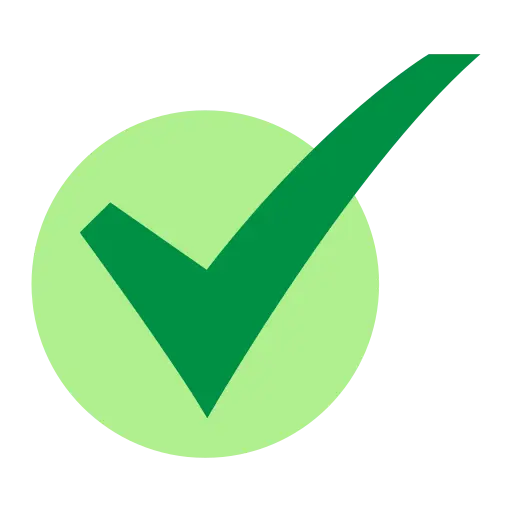Skills for resume for freshers
Trust Score: 4.7
366 reviews

Table of Contents
10 Best skills to include on a resume (with examples)
In today’s competitive job market, a resume is more than a career summary—it's a marketing tool. And the skills section is your most persuasive pitch. Whether you're applying for a remote tech role or an in-office marketing position, showcasing the right skills can make or break your chances.
With the evolution of Applicant Tracking Systems (ATS) and the rise of skill-based hiring, employers are looking beyond degrees. They want proof you can perform. That’s why knowing what and how to list skills on your resume in 2025 is non-negotiable.
What are resume skills? (Soft vs hard skills explained)
When it comes to resume building, there are two primary types of skills:
 Hard skills: Technical abilities you’ve learned through training or experience (e.g., Python programming, SEO, data analysis).
Hard skills: Technical abilities you’ve learned through training or experience (e.g., Python programming, SEO, data analysis). Soft skills: Personal traits and interpersonal abilities that affect how you work (e.g., communication, leadership, adaptability).
Soft skills: Personal traits and interpersonal abilities that affect how you work (e.g., communication, leadership, adaptability).
Pro Tip: The strongest resumes balance both. Think of soft skills as how you work and hard skills as what you do.
How to choose the right skills for your resume
It’s not about adding every skill you possess—it’s about listing relevant skills. Here’s how:
 Read the job description: Use keywords and required skills mentioned.
Read the job description: Use keywords and required skills mentioned. Match industry needs: For example, digital literacy is crucial in almost every 2025 job.
Match industry needs: For example, digital literacy is crucial in almost every 2025 job. Customize for every role: A resume for a software developer will differ from one for a sales executive.
Customize for every role: A resume for a software developer will differ from one for a sales executive. Back it up: Every skill should be supported by experience or results in your work history.
Back it up: Every skill should be supported by experience or results in your work history.
Top 10 best skills to Include on a resume in 2025
Here are the most in-demand and universally valued resume skills:
1. Communication skills
Employers value clear, concise communicators who can present ideas, manage teams, and collaborate effectively—whether it's written, verbal, or digital.
2. Problem-solving abilities
Show that you can think critically, find solutions, and make smart decisions—especially under pressure.
3. Time management
In the hybrid or remote world, managing time and prioritizing tasks is essential for productivity.
4. Technical skills
Depending on your field, this could be anything from coding (Python, Java) to Adobe Suite or CRM tools like Salesforce.
5. Team collaboration
Employers want people who work well in diverse teams—both in-office and remotely.
6. Adaptability
Change is constant. Companies seek candidates who can learn, unlearn, and shift direction with agility.
7. Leadership skills
Whether you're managing a team or taking initiative, leadership skills signal readiness for more responsibility.
8. Analytical thinking
Especially in data-driven industries, being able to analyze trends, interpret data, and draw conclusions is gold.
9. Creativity and innovation
Problem-solving through original thinking or improving processes shows you're more than a task-ticker.
10. Digital literacy
From Google Workspace to AI tools, basic tech-savviness is no longer optional—it's foundational.
Real world resume skill examples (Industry & Role)
Here's how to list skills in action:
Marketing Professional
 SEO/SEM strategies that boosted traffic by 120% in 3 months
SEO/SEM strategies that boosted traffic by 120% in 3 months Proficiency in Google Analytics, Mailchimp, and Canva
Proficiency in Google Analytics, Mailchimp, and Canva Cross-functional campaign coordination
Cross-functional campaign coordination
Software Developer
 Proficient in Python, React.js, and RESTful API development
Proficient in Python, React.js, and RESTful API development Implemented automation scripts reducing manual work by 40%
Implemented automation scripts reducing manual work by 40% Agile & Scrum project methodologies
Agile & Scrum project methodologies
Customer Service Rep
 Conflict resolution with 98% positive feedback score
Conflict resolution with 98% positive feedback score CRM tools: Zendesk, Salesforce
CRM tools: Zendesk, Salesforce Bilingual support (English & Spanish)
Bilingual support (English & Spanish)
Project Manager
 Led cross-border teams with agile sprint planning
Led cross-border teams with agile sprint planning Tools: Trello, Asana, JIRA
Tools: Trello, Asana, JIRA Budget management ($1M+ projects)
Budget management ($1M+ projects)
Fresh Graduate (Business Student)
 Excel modeling & data visualization
Excel modeling & data visualization Team leadership during academic projects
Team leadership during academic projects Internship experience in client presentations
Internship experience in client presentations
Where to put skills on a resume
You can include skills in these sections:
 Dedicated skills section: Ideal for quick ATS scanning.
Dedicated skills section: Ideal for quick ATS scanning. Work experience: Mention skills used in context.
Work experience: Mention skills used in context. Summary statement: Introduce top 2–3 skills upfront.
Summary statement: Introduce top 2–3 skills upfront. Certifications: Show proof of learned technical skills.
Certifications: Show proof of learned technical skills.
Tip: Avoid buzzwords like "go-getter" unless backed with action. Keep it measurable and real.
Common mistakes to avoid when listing skills
 Listing generic skills like "hardworking" without context
Listing generic skills like "hardworking" without context Overusing clichés or fluffy phrases
Overusing clichés or fluffy phrases Including outdated tools/software
Including outdated tools/software Repeating the same skill across multiple sections
Repeating the same skill across multiple sections Forgetting to tailor skills per job description
Forgetting to tailor skills per job description
FAQs about skills on a resume
1. How many skills should I list on my resume?
Stick to 6–12 relevant skills—tailored to the job.
2. Should I tailor my skills for every job application?
Yes. Customized resumes perform far better than generic ones.
3. Can I include soft skills without sounding vague?
Absolutely—just support them with examples in your experience section.
4. How do ATS systems read resume skills?
ATS scans for keywords from the job post. Exact phrasing matters.
5. What if I have limited experience but many skills?
Use internships, coursework, and projects to prove your abilities.
Conclusion: Make your resume skills stand out in 2025
The resume skills section isn't just a list—it's a strategy. In 2025, hiring is faster, smarter, and more skill-focused than ever. By aligning your abilities with what employers need, you show that you're not just qualified—you’re the perfect fit.
Want an ATS-proof resume that highlights your top skills? Try InstaResume.io—our smart resume builder makes it easy to create a modern, customized resume that gets you noticed.






